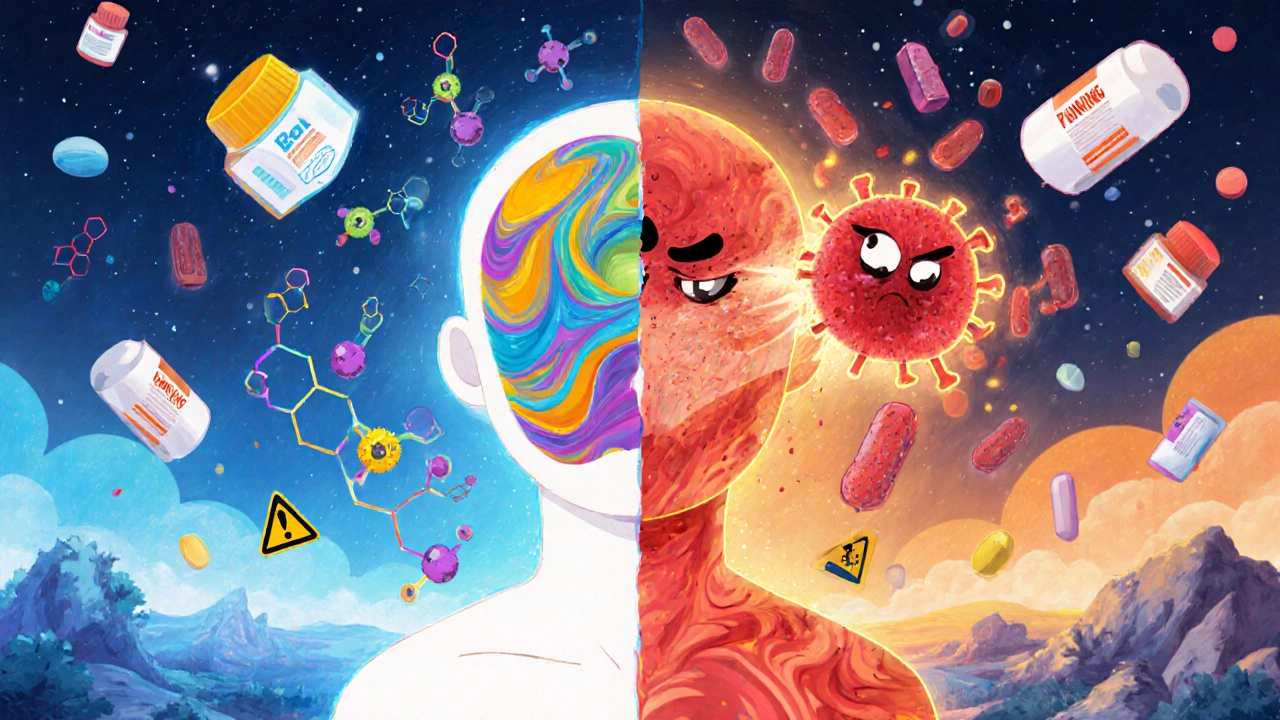Allergic Drug Reaction: Signs, Triggers, and What to Do Next
When your body mistakes a medicine for a threat, it can trigger an allergic drug reaction, an immune system overresponse to a medication that causes symptoms ranging from mild itching to life-threatening swelling. Also known as a drug hypersensitivity reaction, this isn’t just a side effect—it’s your body sounding an alarm. Unlike nausea or dizziness, which are common and expected with some drugs, an allergic reaction means your immune system is actively attacking the medicine. It can happen the first time you take a drug—or after months of safe use.
Common triggers include antibiotics like penicillin, pain relievers like ibuprofen or naproxen, and even seizure meds or chemotherapy drugs. One serious form is AGEP, a rare but severe rash with pus-filled bumps that appears suddenly after taking certain medications. Another is drug rash, a broad term for skin reactions that can look like hives, red patches, or blistering. These aren’t just ugly—they can signal internal danger. If you get swelling in your throat, trouble breathing, or a fever with the rash, it’s not something to wait out.
People often confuse allergic reactions with side effects. If your stomach hurts after taking a pill, that’s likely a side effect. If your face swells up or you break out in itchy red bumps hours later, that’s an allergic response. The difference matters because stopping the drug is only the first step. You need to know what to avoid in the future. Many don’t realize that once you’ve had a reaction to one drug, you might react to others in the same family. That’s why keeping a list of every medication you’ve reacted to is as important as your allergy bracelet.
Doctors don’t always test for these reactions right away. You might be told it’s just a virus or heat rash. But if you’ve had even one unexplained rash after starting a new pill, it’s worth asking: could this be an allergic drug reaction? The posts below cover real cases—like someone who broke out in pustules after an antibiotic, or a parent who nearly overdosed their child by mixing meds without knowing the active ingredients. You’ll find guides on how to recognize the early signs, what to tell your doctor, and how to build a safety plan so you never get caught off guard again.
Difference Between Medication Side Effects and Allergic Drug Reactions
Learn the key differences between medication side effects and true allergic reactions. Discover why mislabeling side effects as allergies leads to higher costs, worse treatments, and unnecessary risks - and what you can do about it.
More
